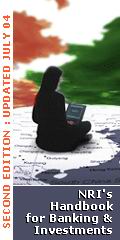|

|
Banks battle against money laundering as market complexity increases
"With international banks bolstering their presence in emerging market economies, and with a low interest rate environment driving growth in alternative assets including hedge funds, private equity and commodity investments, the need for more stringent anti-money laundering processes has only grown. Banks will need to work extremely hard from here if they are to maintain any advantage in the war against money laundering and terrorist financing."
Reporting, identifying
With greater spending and training, the number of suspicious activity reports (SARs) being generated has also increased at over 70 percent of banks. Forty-two percent of banks say that the number of SARs has increased "substantially".
Banks are also making greater efforts to identify politically exposed persons (PEPs) who could be the conduits for laundered money. Over seven out of ten banks say they perform enhanced due diligence on PEPs, markedly up from the worrying low of 45 percent three years ago. There are significant variations here, however, with only 42 percent of banks in the Asia Pacific region and only 65 percent of banks in Europe monitoring for PEPs. Within Europe, this ranged dramatically, from 86 percent in the U.K. to only 29 percent in Spain and 13 percent in Italy. The task facing banks here is made more difficult by the lack of a common definition of a PEP and the fact that in some markets business and politics are closely intertwined.
Cross-border challenge
Despite all of these efforts, it is clear that significant challenges remain. Less than a quarter of respondent banks with an international presence are capable of monitoring a single customer's transactions and account status across multiple countries. There was no evidence that larger banks are any more capable in this respect than smaller banks, and this may reflect that banking secrecy and data protection laws in some countries prevent the sharing of information around a banking group.
North American banks are ahead of their peer group in this respect, however, with 42 percent of banks capable of monitoring across borders. Globally, 41 percent of banks said they were not capable of tracking across countries, and 26 percent were only partially capable.
EU enlargement
In its report, KPMG Forensic also highlights the additional AML risks created by the enlargement of the EU. Many of the ten countries that have recently joined have not historically had stringent AML processes in place and it is likely to take these countries some time to bring their processes up to the standards required under the EU Third Money Laundering Directive. Some banks may be particularly vulnerable to risks if their internal procedures are based on the assumption that all EU banks are low risk and accordingly apply less scrutiny to these relationships.
Brendan Nelson, Global Chairman of KPMG's Financial Services practice and U.K. firm partner, concluded: "There is no doubt that a more even regulatory playing field globally would help banks coordinate their anti-money laundering processes more effectively. The desire and commitment is there, as banks recognize that money laundering is an issue with significant adverse reputational issues for them if things go wrong. However, a mixed regulatory landscape and banks' own legacy issues in their KYC (know your customer) information, IT systems and culture is making the task difficult for many. As the expansion into emerging and alternative markets continues apace, these challenges are only likely to grow."
(This is press release of KPMG International)
<<< BACK TO PAGE 1
Banknet India's "Third International Bank Tech Summit" on 10th October, 2007 at Mumbai will focus on anti-money laundering efforts in the financial sector... Click here
|
|

|



